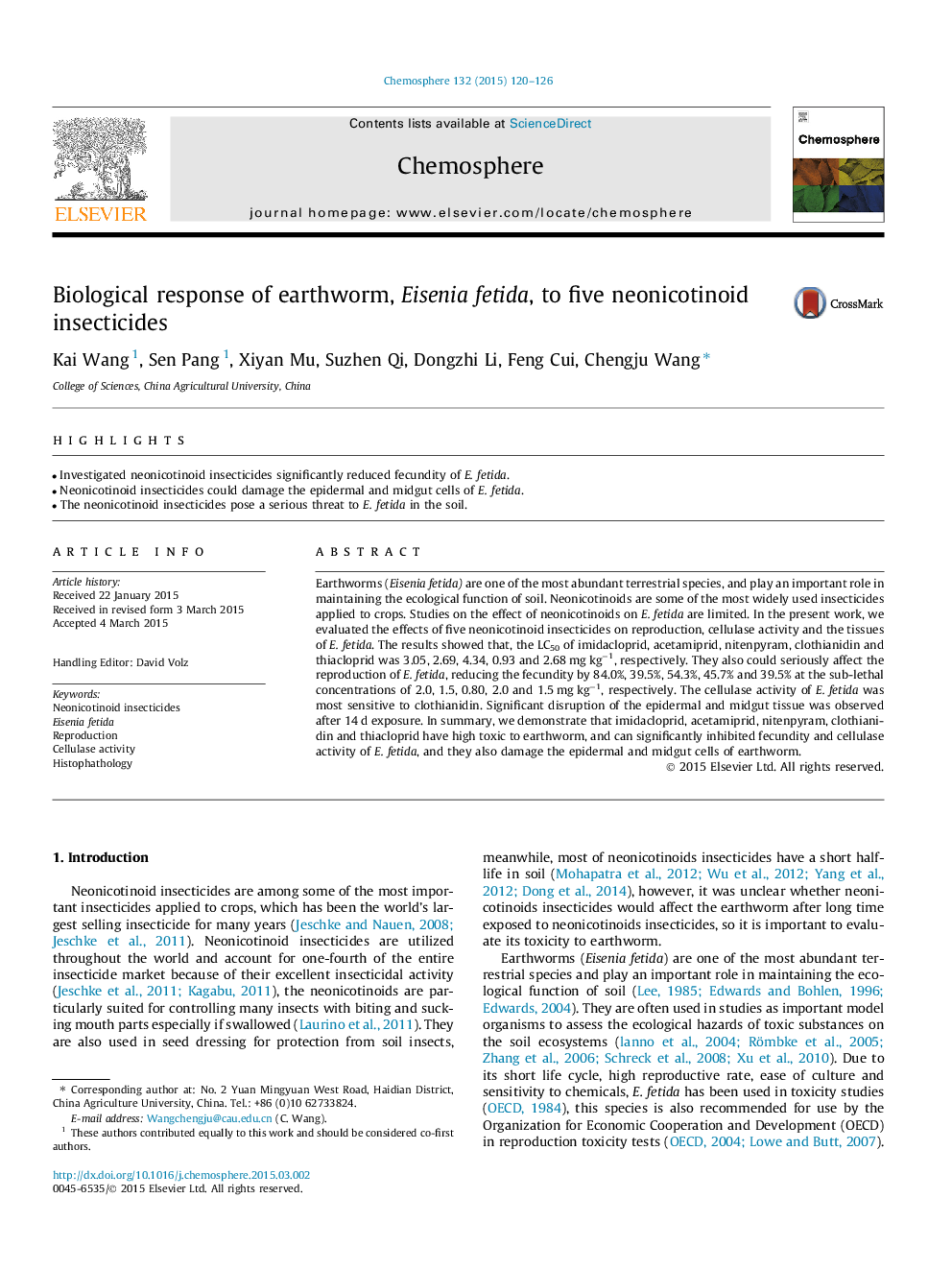| Article ID | Journal | Published Year | Pages | File Type |
|---|---|---|---|---|
| 6307949 | Chemosphere | 2015 | 7 Pages |
Abstract
Earthworms (Eisenia fetida) are one of the most abundant terrestrial species, and play an important role in maintaining the ecological function of soil. Neonicotinoids are some of the most widely used insecticides applied to crops. Studies on the effect of neonicotinoids on E. fetida are limited. In the present work, we evaluated the effects of five neonicotinoid insecticides on reproduction, cellulase activity and the tissues of E. fetida. The results showed that, the LC50 of imidacloprid, acetamiprid, nitenpyram, clothianidin and thiacloprid was 3.05, 2.69, 4.34, 0.93 and 2.68 mg kgâ1, respectively. They also could seriously affect the reproduction of E. fetida, reducing the fecundity by 84.0%, 39.5%, 54.3%, 45.7% and 39.5% at the sub-lethal concentrations of 2.0, 1.5, 0.80, 2.0 and 1.5 mg kgâ1, respectively. The cellulase activity of E. fetida was most sensitive to clothianidin. Significant disruption of the epidermal and midgut tissue was observed after 14 d exposure. In summary, we demonstrate that imidacloprid, acetamiprid, nitenpyram, clothianidin and thiacloprid have high toxic to earthworm, and can significantly inhibited fecundity and cellulase activity of E. fetida, and they also damage the epidermal and midgut cells of earthworm.
Related Topics
Life Sciences
Environmental Science
Environmental Chemistry
Authors
Kai Wang, Sen Pang, Xiyan Mu, Suzhen Qi, Dongzhi Li, Feng Cui, Chengju Wang,
